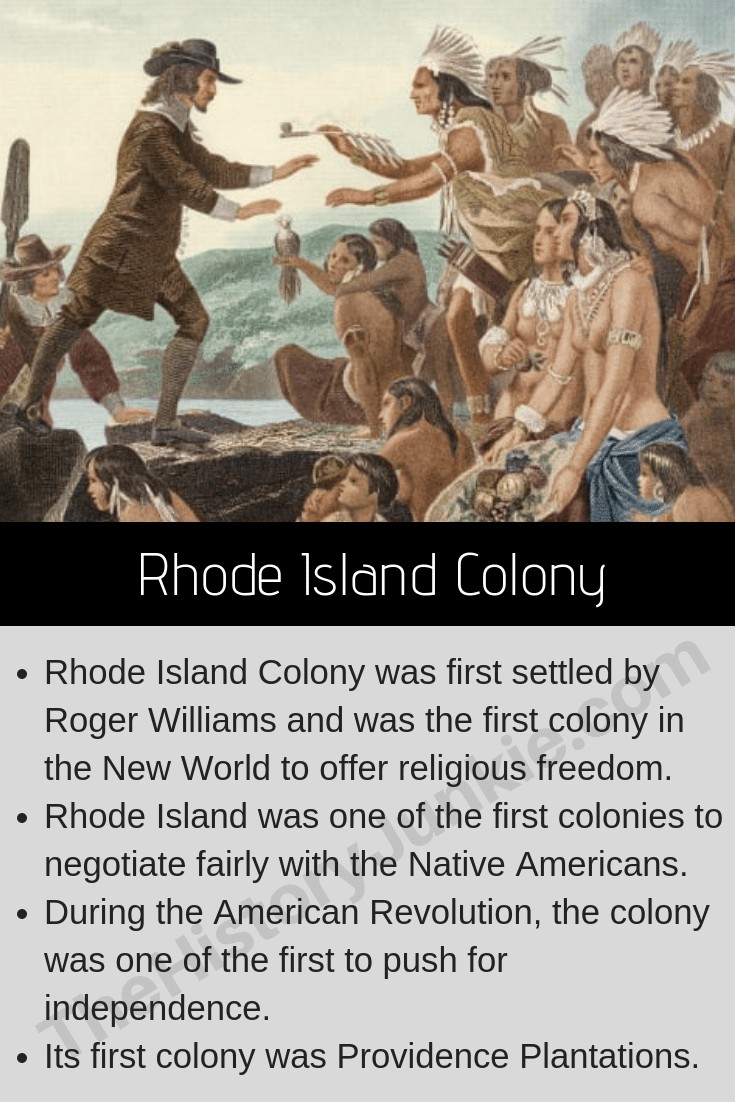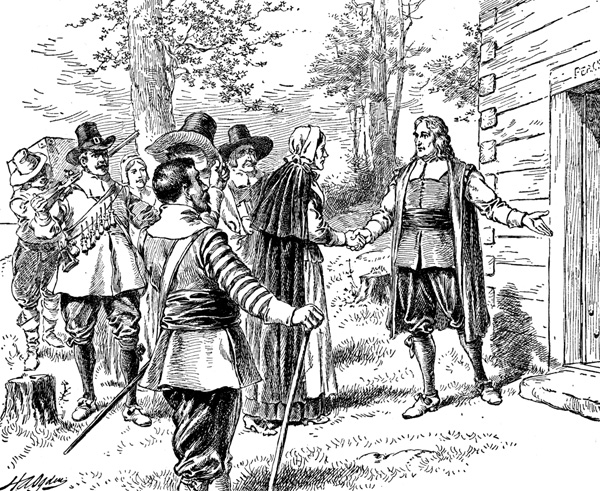Rhode Island was first settled by Roger Williams and his followers. Williams was a minister in the Massachusetts Bay Colony and was banished by the Puritans for his teachings.

Williams and his settlers moved south from Massachusetts Bay Colony and settled in Providence Plantations.
Jump to:
Providence Plantations was the first colony in New England to offer religious freedom and separate church from state. They created an egalitarian constitution along with a majority rule decision for social issues.
Providence Plantations was named for two things. Williams believed that it was God's providence that placed him there and that he was doing the work of God. Secondly, the colonies' economy was going to depend on agriculture to survive.
Anne Hutchinson

Anne Hutchinson and her husband, as well as their followers, came to Rhode Island and settled the colony in what is now called Portsmouth after they were exiled from Massachusetts Bay.
Her husband, William Coddington, and others colonized Newport, Rhode Island, in 1639.
Anne Hutchinson is often known as one of the first feminists to challenge the cultural norm. At a time when women were not given the same opportunities as men, she questioned some of the most powerful men in the colony.
Royal Charter, Religious Freedom & King Philips War

Rhode Island and her colonies attained a royal charter from King Charles II, who was sympathetic to Catholics in devoutly Protestant England.
King Charles II was pleased to see a colony that offered religious freedom and granted the charter, which in turn encouraged many of the persecuted to flee England for Rhode Island.
In 1651, William Coddington obtained a separate charter from England that set him up as the life governor of the islands of Rhode Island and Connecticut in a federation with the Connecticut Colony and Massachusetts Bay Colony.
There was fierce opposition to this, and a petition was sent to Oliver Cromwell, who then reinstated the original charter.
Although they tried to stay neutral, Rhode Island Colony was the site of one of the bloodiest battles in King Philip's War.
The relationship with the Native Americans and the surrounding colonies was hostile, and even though Rhode Island tried to stay neutral, they would take part.
The Massachusetts, Connecticut, and Plymouth militia invaded and destroyed the fortified Narragansett Indian village. The Narragansett also invaded and damaged multiple colonies in Rhode Island.
King Phillip was also assassinated in Rhode Island Colony.
American Revolutionary War
By the time of the American Revolutionary War, Rhode Island had established itself as a haven of religious freedom.
It was the first to renounce its allegiance to the British Crown on May 4, 1776 (2 months before the Declaration of Independence) and was the last of the colonies to ratify the United States Constitution on May 29, 1790.
They were reluctant to ratify at first because they believed that the larger states would have too much power. However, once the Bill of Rights was put into the Constitution, Rhode Island agreed.
During the Revolution, arguably the greatest General in the American Revolutionary War came from Rhode Island, Nathanael Greene.
